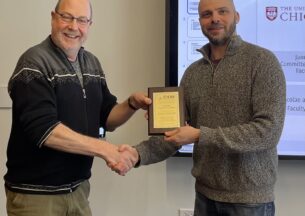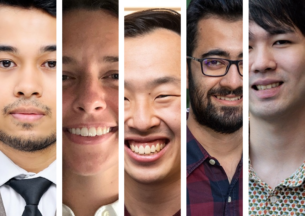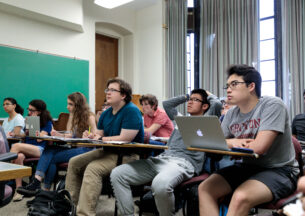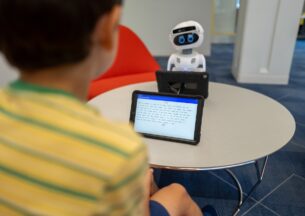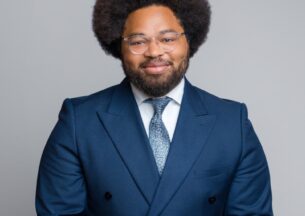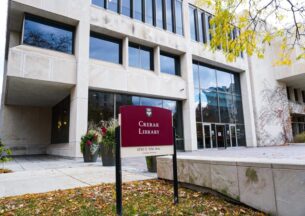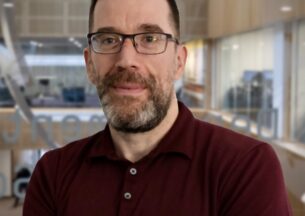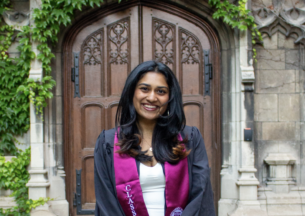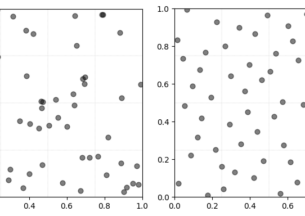Ben Zhao Named to TIME Magazine’s TIME100 AI List
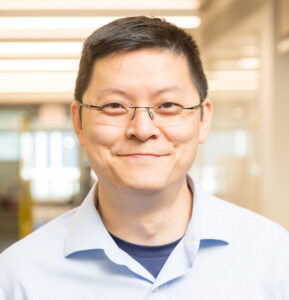
The University of Chicago’s Department of Computer Science is proud to announce that Ben Zhao, Neubauer Professor of Computer Science, has been named to TIME Magazine’s prestigious TIME100 AI list. This recognition places him among the world’s most influential leaders, innovators, and thinkers in artificial intelligence, reflecting his significant contributions to the field.
The TIME100 AI list celebrates individuals who are shaping the future of AI, a technology that continues to revolutionize industries and redefine human capabilities. As TIME highlights, the rapid growth of AI is driven not just by the technology itself, but by the people behind it—those who make critical decisions about its development, safety, and application. Ben Zhao’s recognition on this list highlights his leadership in AI research, particularly in the areas of adversarial machine learning and security.
A Career Marked by Innovation and Impact
Ben Zhao’s academic journey began with a B.S. in Computer Science from Yale University, followed by a Ph.D. from UC Berkeley in 2004. His research has spanned a broad range of areas, including networking, human-computer interaction, and security and privacy. Since 2016, he has focused on addressing security and privacy challenges in machine learning and mobile systems. Most recently, his work has centered on adversarial machine learning and developing tools to protect human creatives from the potential harms of generative AI models.
“My experiences across different areas (but especially in human-computer interaction) has taught me the value of engaging with users to truly understand how research and technology impacts real people,” said Zhao. “As a result, I am always drawn to research challenges that impact large groups of people, and projects that address those challenges by taking into account perspectives of the users most directly impacted.“
Throughout his career, Zhao has been recognized with numerous awards and honors. He is an ACM Fellow and a recipient of the NSF CAREER award, the Internet Defense Prize, and MIT Technology Review’s TR-35 Award, among others. His work has been featured in prominent media outlets such as the New York Times, Scientific American, NBC, CNN, BBC, and the Wall Street Journal, underscoring the broader societal impact of his research.
In addition to his research, Zhao is deeply involved in the academic community. He serves on technical program committees for top conferences in computer security (ACM CCS, IEEE Security & Privacy) and machine learning (NeurIPS). At University of Chicago, he co-directs the Security, Algorithms, Networking, and Data (SAND) Lab at UChicago alongside Neubauer Professor Heather Zheng and serves as the Director of Graduate Studies for the Department of Computer Science.
Pioneering Research in AI Security
One of Zhao’s most notable contributions to AI research is his work on adversarial machine learning—a field that explores how machine learning models can be manipulated and how to defend against such attacks. He is particularly known in the field for using “attacks” to build protective tools to mitigate harms of AI. This line of work began in 2020, with Fawkes, an image cloaking tool designed to prevent third parties from building unauthorized facial recognition models of individuals based on public photos online. His recent projects include tools like Nightshade, which proactively protects content copyright of visual artwork by making them toxic to AI models that train on them without consent, and Glaze, which protects individual artists against style mimicry. These innovations reflect Zhao’s focus on developing AI technologies that consider the importance of protecting individual privacy and creativity.
Shaping the Future of AI
As AI continues to evolve at a breakneck pace, the insights and innovations of leaders like Ben Zhao will play a crucial role in shaping the technology’s future. His recognition on the TIME100 AI list is not just a personal achievement but also a reflection of the groundbreaking work being done at the University of Chicago’s Department of Computer Science.
“The recent rush towards generative AI has been spurred on by an aura of inevitability, promises of societal benefits, and massive profits,” Zhao warns. “While many of these have yet to materialize, harms like copyright violation, proliferation of AI slop and deepfakes, and disruption to creative sectors are here today. These are the harms our lab works to mitigate through our research. I’m humbled by this recognition, and proud to share it with my long-term collaborator Prof. Heather Zheng, our wonderful students, and the many human artists, writers and other creatives working with us to build a future ecosystem where human creativity is valued more than technology.“


